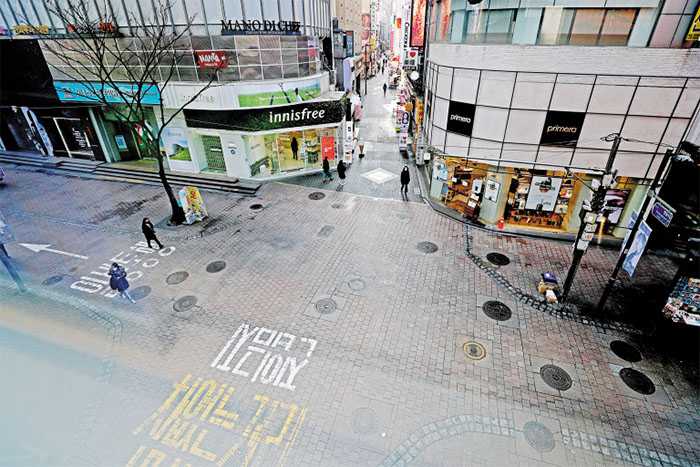Coronavirus Spurs WEB BUSINESS, Isolation
05 March, 2020

The coronavirus epidemic is changing consumption patterns here with the emphasis on minimizing human contact and offering an alarming glimpse into a future of increasing personal isolation.
Major industry events and new product launches have already been canceled, and individuals are buying groceries, daily necessities, clothes and even cars on the web. Exercise, education and even cultural activities are being done online.
Companies are naturally having to change their marketing strategies. Global automakers were planning to unveil their latest models at the Geneva Motor Show that was to open on Thursday but was canceled just three days before opening day.
Instead, live online streams of the events were devised to reduce the harm to the industry.
Volkswagen on Tuesday unveiled on its website the brand new high-performance Golf GTI and the Touareg R hybrid. Porsche unveiled its new 911 Turbo sports vehicle in a live stream, and Hyundai its new EV concept car called "Prophecy." Mercedes Benz, BMW and Audi intend to follow suit.
More individuals are resorting to online purchases of cars whether or not they cost tens to vast sums of won (US$1=W1,194). Online car vendor Getcha said the quantity of customers thinking about buying cars through the site doubled last month to 50,000.
Seoul's shopping district of Myeong-dong is deserted on Saturday. /Yonhap
Instead of gym classes, people are watching exercise videos and hopping or crunching along at home, and they watch movies at home. Dano, that provides mobile workout coaching, said 1,200 new users registered in February alone, raising the full total number of users to 11,000.
Streaming content service agency Wavve said movie purchases during Feb. 18-25, when the amount of new coronavirus infections surged in Korea, increased seven percent from the previous week. Meanwhile, concert halls sit nearly empty. Data from the Korean Film Council shows only 7.35 million persons visited movie theaters in February, a third the particular level seen this past year.
Online education can be booming. Yonsei, Korea, Sungkyunkwan, Kyunghee and other major universities together with large private crammers are shifting to classes on the web. Some parents have even private tutoring conducted online. A university student who is giving private lessons twice a week to a secondary schooler is using Skype on her behalf lessons at the parents' request.
The latest epidemic has only accelerated the digitalization of people's lives. Yee Jae-yeol, a sociologist at Seoul National University said, "The outbreak will spur heated discussions of no-contact systems in a variety of areas in society, from work to consumption, education and medical services."
But areas such as manufacturing and research, which can't be replaced by online alternatives, could grind to a halt, while the economy could have a huge hit due to curtailed travel and spending.
Other unwanted effects of a spreading no-contact culture are social isolation and depression. Koo Jeong-woo at Sungkyunkwan University said, "Senior citizens and the poor will feel particularly disadvantaged. We might visit a weakening of social cohesion or sense of community."
Source:
TAG(s):
